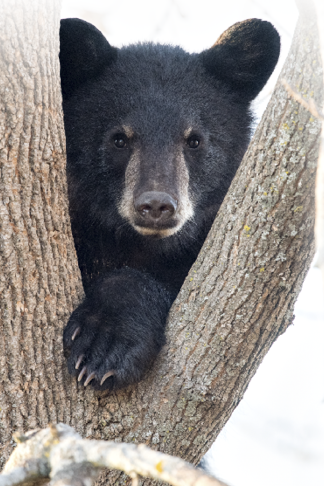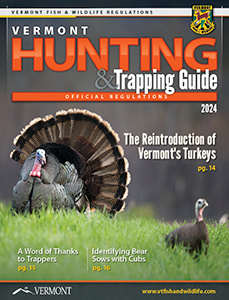Do Not Shoot Bears Accompanied by Cubs

Photo by Roger Irwin
Hunting black bears offers a deeply rewarding experience along with high-quality meat. However, a successful bear hunt involves careful preparation. One important step is learning to correctly identify black bear family groups.
Black bear cubs are dependent on their mother for the first 16 months of their life. Without her care, cubs are more susceptible to predation, starvation and, in some cases, they will turn to human foods out of desperation. Cubs are born in January and forage, travel, and rest with their mother during their first fall. It isn’t until the following spring that they are ready to strike out on their own.
It is important that hunters take precautions to avoid harvesting sows accompanied by cubs. Follow these steps to increase the likelihood that you will correctly identify bear family groups:
- Be observant. Most adult female bears weigh between 120 to 180 lbs. Be diligent to observe bears of this size class to determine if they are alone before harvesting.
- Be patient. Family groups may not always be within sight of each other, but members will be nearby. Take time to observe a bear to determine it is alone before harvesting. Select a shooting location that offers views of the surrounding area to increase the chance of observing potential cubs.
- When in doubt, don’t shoot.
Find additional tips for a successful bear hunt on Vermont Fish & Wildlife’s web page: https://vtfishandwildlife.com/hunt/hunting-and-trapping-opportunities/black-bear/bear-hunting-tips-and-techniques

